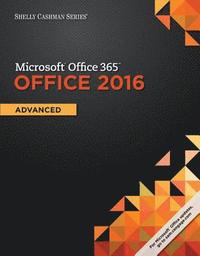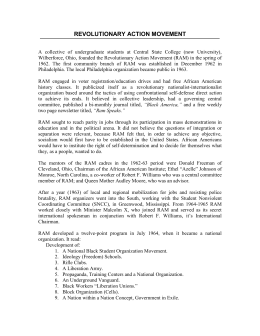Instructor Manual Discovering Computers 2018
Learn to maximize the use of mobile devices, make the most of online tools for collaboration and communication, and fully utilize the web and cloud with the latest edition of DISCOVERING COMPUTERS 2018. Clearly see how technology skills can assist you both in gaining employment and advancing your career. This edition highlights web development, how to create a strong web presence, and take full advantage of the latest Windows 10. To keep your instruction as current as possible, online coverage of contemporary technology developments builds on the book's timely discussions. The authors provide helpful suggestions within a proven learning structure and emphasize meaningful practice to reinforce your skills. Self-assessments open each module and enable you to focus your study and learn more in less time.
DISCOVERING COMPUTERS presents the key content you need to succeed, using an approach that ensures understanding. In addition to co-authoring DISCOVERING COMPUTERS, Jennifer T. Campbell has written several other leading technology texts, including DISCOVERING THE INTERNET, WEB DESIGN: INTRODUCTORY, MICROSOFT(R) EXPRESSION WEB INTRODUCTORY CONCEPTS AND TECHNIQUES, COMPUTER LITERACY BASICS: MICROSOFT(R) OFFICE 2007 COMPANION, and MICROSOFT(R) OFFICE QUICK REFERENCE POCKET GUIDE. Campbell has served integral roles in computer textbook publishing as an editor, author, and marketing manager.
She holds a B.A. In English from The College of William and Mary. Freund attended the University of Central Florida and serves as a leader instructor of various Microsoft(R) Office, computer concepts, programming, and Internet technology courses throughout Central Florida. An integral author for the successful Shelly Cashman Series since 2001, he has presented at the annual customer conference, the Shelly Cashman Series Institute, as well as other customer events. Freund has co-authored multiple editions of DISCOVERING COMPUTERS, Mozilla Firefox, Windows(R) Internet Explorer, Windows(R), Office, and Dreamweaver books.
He has also written numerous successful instructor supplements. Mark Frydenberg is a Senior Lecturer of Computer Information Systems at Bentley University in Waltham, Massachusetts.
He also serves as the Director of the university's CIS Learning and Technology Sandbox, a social learning space where students interact with technology and each other. Professor Frydenberg teaches courses in IT concepts, web development, and technology trends. His research focuses on flipped and collaborative learning and pedagogies for engaging students with technology.
Professor Frydenberg frequently presents on teaching and learning with new technologies at conferences and training events throughout the US and Europe. He has also authored WEB 2.0 CONCEPTS AND APPLICATIONS, one of the many successful texts in the popular Shelly Cashman Series. Vermaat has more than 25 years of experience in the field of computer and information technology. In addition to consulting in the field, she was an Associate Professor at Purdue University Calumet, teaching or developing Microsoft(R) Office, computer concepts, database management, systems analysis and design, and programming courses.
Since 1990, Ms. Vermaat has led the development of the Shelly Cashman Series and has written or co-authored numerous Series textbooks, including many editions of DISCOVERING COMPUTERS, DISCOVERING COMPUTERS FUNDAMENTALS, and Microsoft(R) Word books. Sebok is a retired professor at South Suburban College in South Holland, Illinois. She is also a licensed attorney. Sebok has co-authored several successful textbooks for the leading Shelly Cashman Series, including multiple versions of Microsoft(R) PowerPoint(R) and DISCOVERING COMPUTERS.
Introducing Today's Technologies: Computers, Devices, and the Web. Connecting and Communicating Online: The Internet, Websites, and Media.
Discovering Computers 2018
Computers and Mobile Devices: Evaluating Options for Home and Work. Programs and Apps: Productivity, Graphics, Security, and Other Tools. Digital Security, Ethics, and Privacy: Threats, Issues, and Defenses.
Focus On: Technology Timeline. Focus On: Web Development. Appendix A: Technology Acronyms. Appendix B: Troubleshooting Computer and Mobile Device Problems.
Course Description This course provides an overview of the fundamental concepts and terminology of computer information systems including lab experience with current computer applications. Computer Requirements. Operating System: Windows 7 or later. Hardware: Intel i5 or faster, 4 GB of RAM. Software: Microsoft Office 2016 Professional. Browser: Latest Firefox.
Internet connection, an email account. Note: Do not use the AOL Browser with Blackboard. It does not work well and can be very unstable. Availability of On-Campus Computers If you do not have access to above hardware/software at home, On-campus computers with required hardware/software for students use are available in the second floor computer lab (Room B202) in the Business Building. The primary storage device used in the CIS Computer Lab is a USB Flash Memory Storage Device. All students enrolled in this class are eligible to use the computer lab for unlimited number of hours during the term of the course.
The lab is fully staffed with certified instructors and lab technicians to assist you with your work. CIS Lab Location and Hours. CIS Computer Lab Room BUS-202. Monday through Thursday 9 a.m.
To 9 p.m., Friday 9 a.m. Saturday and Sunday Closed. Phone: (714) 484-7215 (voice mail), (714) 484-7214. Email: Textbook and Supplies. TEXT: Discovering Computers 2017 by Vermaat, Shelly Cashman Series. LAB MANUAL: Microsoft Office 2016 Lab Manual by McKnight (Fall 2016 Edition). 4 GB USB flash drive Course Objectives: Upon completion of this course the student will be able to:.
Identify the role of computers in modern society. List the elements of an information system. Identify how information systems are used in business. Specify the advances in technology that characterize each of the four generations of computers. Identify the parts of the central processing unit and how they work together. Identify the types and uses of input and output devices.
List the similarities, differences, advantages, and disadvantages of magnetic storage devices. List the advantages and disadvantages of the five network systems in teleprocessing. List the advantages and disadvantages of using prewritten software. Identify the components and functions of operation systems. Describe those measures that can be taken to ensure the integrity of information systems and protect them from improper access.
Describe the system development process as a tool in the selection of a personal computer. Identify the social issues and trends that relate to how computers will affect society in the near future. Use word processing software on a personal computer to create, edit, and print a document. Use spreadsheet software on a personal computer to project potential solutions to common problems found in the work environment. Create, access, update and generate reports using file management software on a personal computer. Specify how to access and connect to the internet. Student Learning Outcome.
Upon completion of Computer Information Systems, the student should be able to: a. Use Microsoft Word software to insert/format a table, insert a picture, and format a document with 70% accuracy.
Use Microsoft Excel software to create formulas and format a worksheet with 70% accuracy. Use Microsoft Access software to create a query, form, and report with 70% accuracy. Upon completion of the course, students will be able to understand concepts related to hardware, software, network, security, ethics and privacy with 70% accuracy. Classroom Procedures The class is conducted through an educational environment called Blackboard. It can be accessed through this specific web address:.
The first page you will see is the Blackboard page. You may want to bookmark this page. Click the Login button.


Use your myGateway username and password to login. The next page is the My Cypress College page. Under the section, My Courses, click on the course name, CIS111: Computer Information Systems.
When you first enter the site you will see the Announcements page. Here you will find instructions about how to proceed. Tips for Online Success The successful online student is independent, self-motivated, willing to learn in isolation, willing to ask questions as soon as questions arise, good with written instructions, good at expressing himself in writing, aware of technology as a convenience and a barrier. Academic Honesty Policy Students are expected to abide by ethical standards in preparing and presenting material which demonstrates their level of knowledge and which is used to determine grades. Such standards are founded on basic concepts of integrity and honesty. The policy can be found in the Cypress College Catalog. Each student is expected to do his own work. Copying or submitting work not your own may result in failure and dismissal from this class. Also you can go to the and find the Academic Honesty Policy.
Discovering Computers 2018 Pdf
Student Grievances Please contact me if you have questions or concerns during the course. I am sure we can resolve any concern which may prevent you from successfully completing this course. Contact me first with any problem.
If the problem cannot be resolved between the two of us, you can refer to the Student Grievances section on the. Student Services Online students have access to the same student services as on-campus students. Disability Support Services (DSS) and Health Center are also available to any students at Cypress College. For more on student services, please refer to college website. Academic Advising/Counseling: Online students have access to the same student services as on-campus students.
Discovering Computers 2011
For more on student services, please refer to college website. Disability Support Services (DSS) Students with disabilities who have been found eligible for course accommodations through DSS should contact their online instructor as soon as they register for an online course. They should also contact the DSS Counselor and request that s/he send the instructor verification of their need for accommodations. For more information, see: For Your Information.